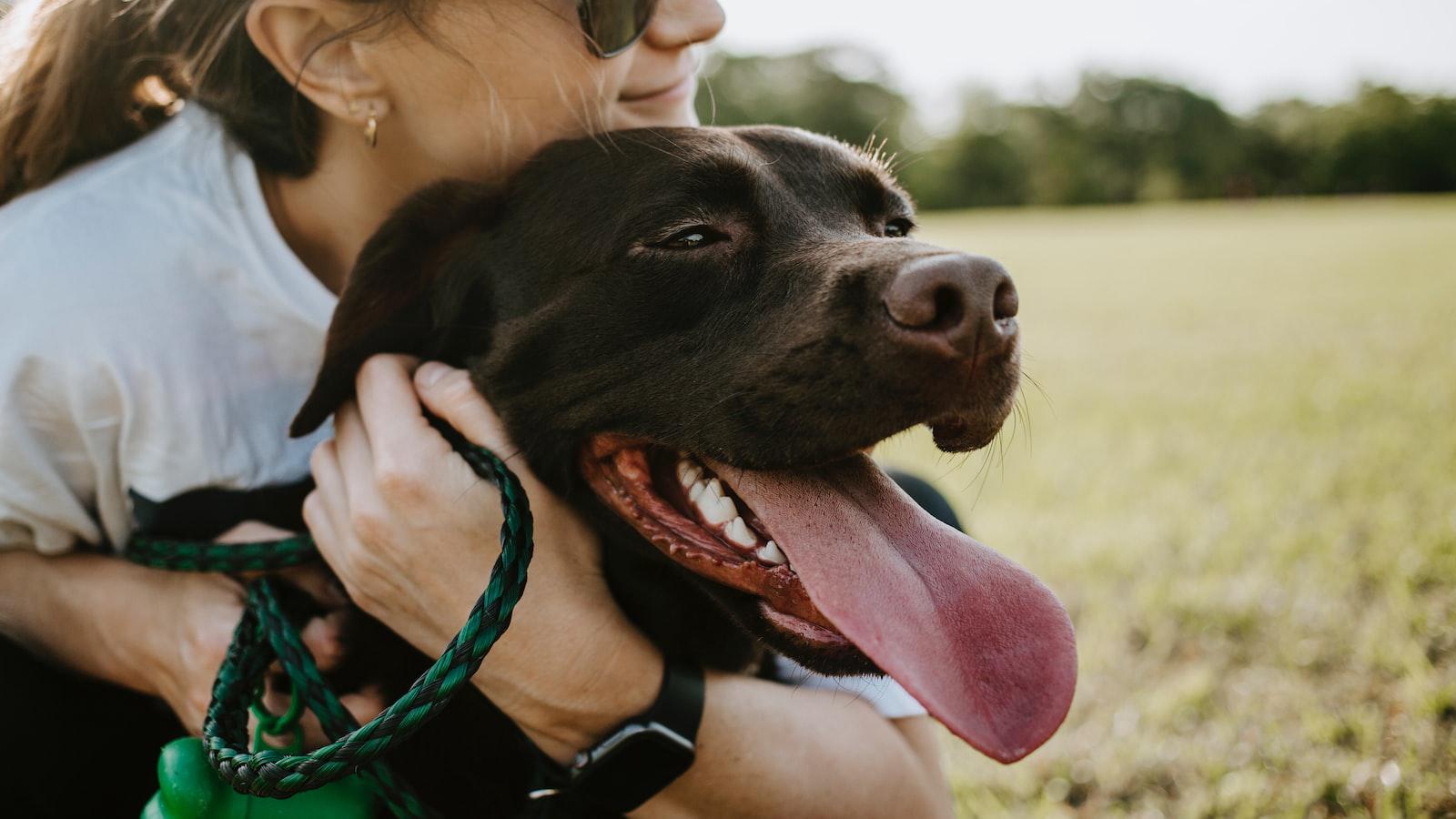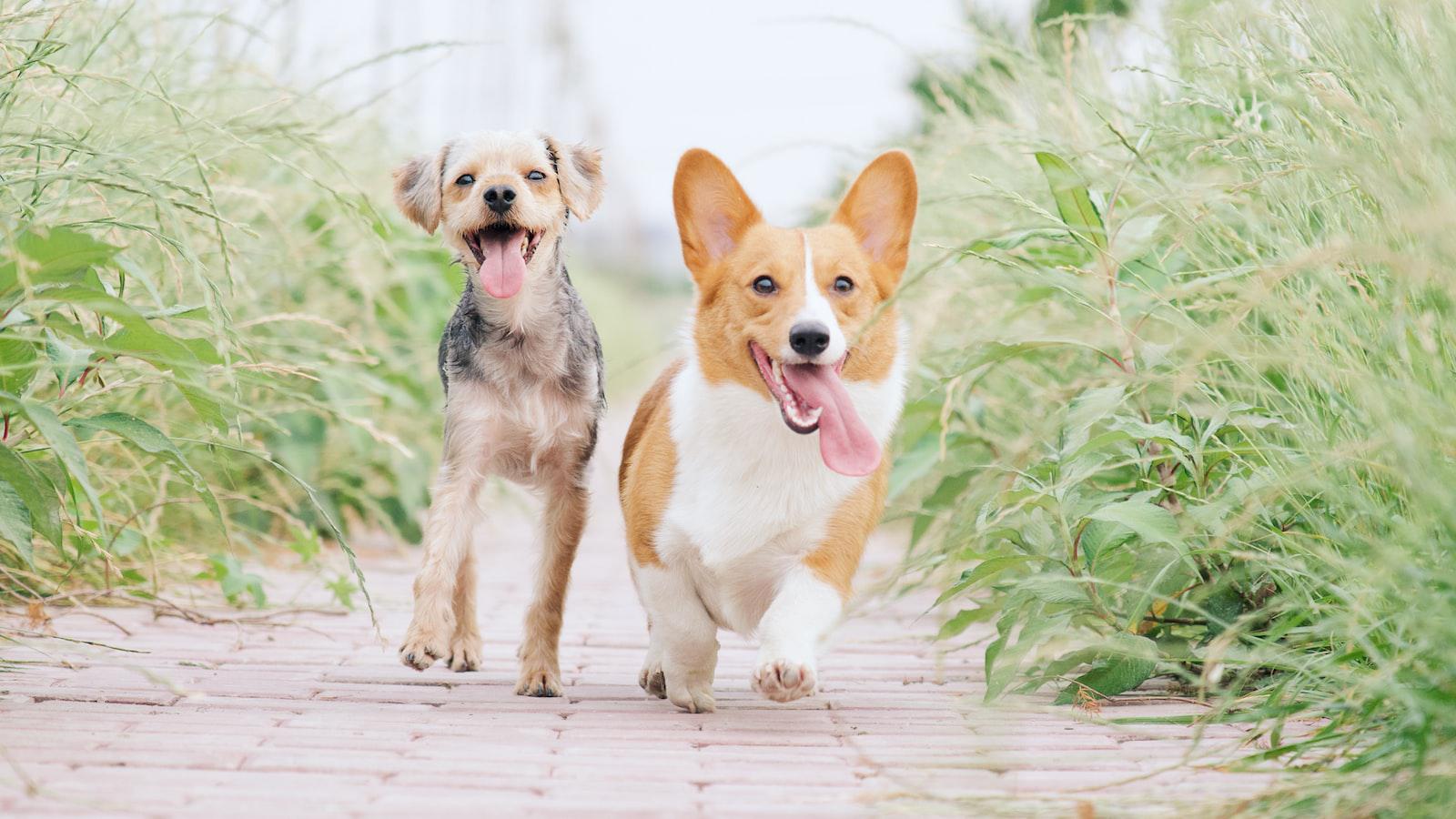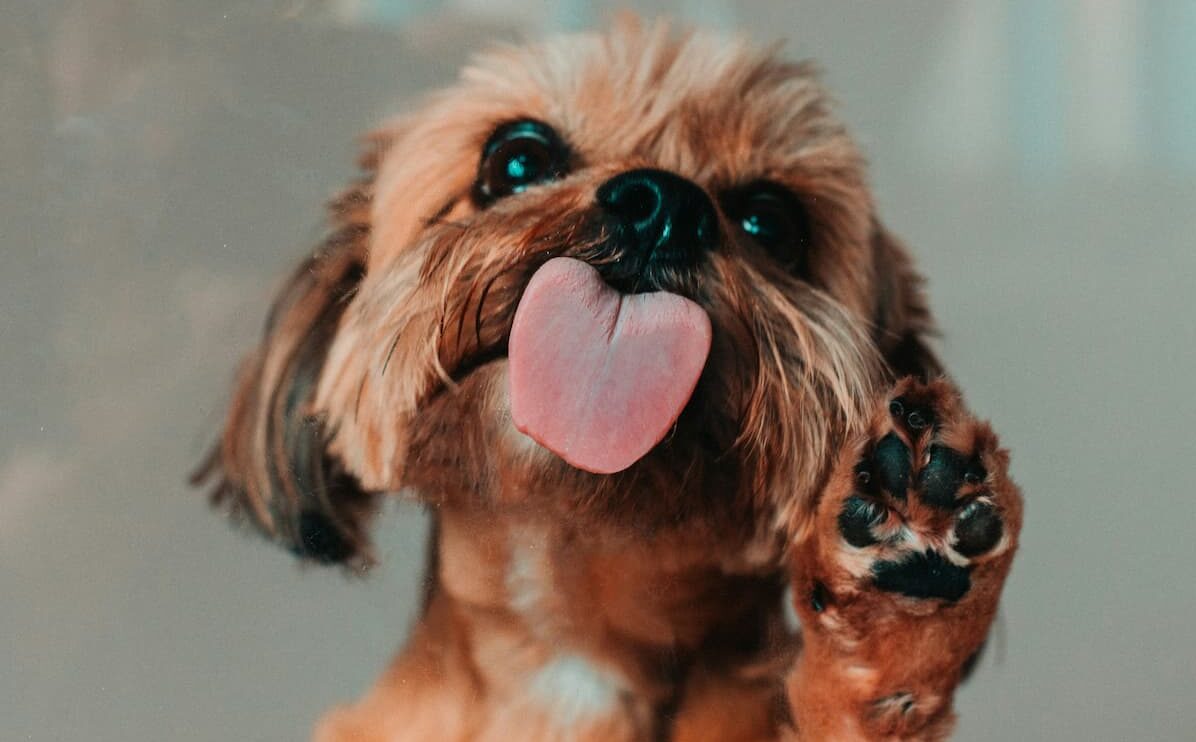Have you ever wondered why dogs are so obsessed with keeping clean in the nether regions?
Is it mere hygiene, instinct, or perhaps their idea of a clandestine, canine spa treatment?
Read on to answer the question: Why do dogs lick their privates?
Uncovering Why Do Dogs Lick Their Private Areas?
Most dog owners have probably noticed their furry friends engaging in a peculiar grooming behavior – licking their privates.
While it may seem strange to us humans, dogs have a perfectly good reason for engaging in this self-cleaning ritual:
First and foremost, it’s essential to understand that dogs lick themselves as a means of grooming.
Just like cats, dogs use their tongues as natural tools to clean their fur and remove any dirt or debris.
Licking their private areas is a part of this self-grooming routine.
By licking their genitals, dogs can prevent the buildup of bacteria and keep their private areas clean and hygienic.
Additionally, dogs’ self-cleaning behavior is linked to their scent communication.
Dogs possess scent glands in their genital area, and licking helps them spread their unique scent.
This serves as a form of communication with other dogs, conveying information about their dominance, reproductive status, and even emotions.
So, while it may appear odd to us, licking their privates is just another way for dogs to communicate and assert their presence in the canine world.
Secondly, licking serves as a way for dogs to alleviate any discomfort or irritation they may be experiencing down there.
It could be a result of allergies, urinary tract infections, or even fleas.
By licking incessantly, dogs are trying to provide themselves with some relief from the itchiness or discomfort they are experiencing in their private regions.
However, it is crucial to note that excessive licking can sometimes indicate an underlying medical issue, and it’s always best to consult your veterinarian if you notice this behavior persisting for long periods.
Moreover, licking their private parts serves as a form of self-soothing for dogs.
Similar to how we might bite our nails or twirl our hair when feeling anxious or stressed, dogs often resort to self-grooming to comfort themselves.
The repetitive licking motion releases endorphins, creating a calming effect and relieving any tension or distress they may be experiencing.
Similarly, if your dog is not getting enough mental or physical stimulation, they may resort to self-licking for entertainment.
Ensuring your furry friend has a balanced routine with plenty of exercise and mental enrichment can help reduce any excessive licking behaviors caused by anxiety or boredom.
Medical Conditions When Licking Becomes Excessive
Excessive licking is a common behavior among our furry friends, and while it may seem innocent at first, it can sometimes indicate an underlying medical condition.
If you’ve noticed that your dog is frequently licking their private area, it’s important to pay attention and consider potential medical reasons behind this behavior.
One possible medical condition that can cause excessive licking is urinary tract infection (UTI).
Dogs with UTIs may lick their private area as a way to relieve discomfort or to clean themselves.
Other signs of a UTI can include frequent urination, difficulty urinating, blood in the urine, or an unusual odor.
If you suspect your dog may have a UTI, it’s crucial to consult your veterinarian for a proper diagnosis and treatment.
Another medical condition that can lead to increased licking is allergies.
Dogs can develop allergies to various irritants, such as certain foods, outdoor allergens, or even household cleaning products.
If your dog is experiencing itching, redness, or inflammation in their private area alongside excessive licking, allergies could be the culprit.
Your vet can perform tests to identify the specific allergen and recommend appropriate treatment options, such as dietary changes or antihistamines.
Furthermore, hormonal imbalances can also contribute to excessive licking in the private area.
When female dogs go into heat, their hormone levels fluctuate, which can lead to increased licking.
It’s important to note that intact male dogs may also excessively lick their private area due to mating instincts or hormone-related issues.
If you suspect hormonal imbalances are causing the excessive licking, consult with your veterinarian to discuss appropriate management options, which may include spaying or neutering.
In conclusion, while dogs licking their private areas can be a perfectly normal behavior, it’s essential to pay attention to any changes or excessive licking.
Keeping an eye out for signs of irritation or infection is crucial, as seeking veterinary care can help identify and treat any underlying issues.
Remember, a little investigation and TLC can go a long way in ensuring your canine companion remains happy and healthy.
FAQ
Q: Why do dogs lick their private parts?
A: Well, dogs have an innate grooming instinct, and licking is a natural way for them to keep their bodies clean.
Just like we humans might lick our lips or touch our face, dogs use licking as a way to maintain cleanliness down there.
Q: Is it purely a grooming habit, then?
A: Not entirely!
While grooming is a primary reason, dogs licking their private areas can also indicate underlying health issues.
Itchy skin, allergies, infections, or even urinary tract problems could trigger this behavior.
If you notice excessive licking in your furry friend, it’s always wise to consult a veterinarian to rule out any potential health concerns.
Q: Is it normal for dogs to lick excessively?
A: Occasional licking is typically harmless, but if your pooch is constantly licking its private parts to the point of irritation or discomfort, it could be a red flag.
Keep an eye for signs of redness, swelling, or persistent itching, which may necessitate a trip to the vet.
Q: Does gender play a role in this behavior?
A: Yes, indeed!
Female dogs may lick their private areas more frequently than males due to their reproductive cycle.
During heat, females produce pheromones that may attract males, leading to increased licking activity.
However, male dogs also engage in licking behaviors, primarily for grooming purposes.
Q: Can excessive licking be a sign of anxiety?
A: Absolutely!
Just like humans, dogs can experience anxiety too, manifesting through various behaviors.
Excessive licking, including their private parts, could be a sign of stress or discomfort.
If you suspect anxiety may be the cause, it’s best to consult with an experienced dog behaviorist or trainer for guidance and support.
Q: Are there any ways to redirect or curb excessive licking?
A: Certainly!
If your dog’s licking seems excessive, distracting them with alternative activities can help redirect their attention.
Engaging in interactive play, providing puzzle toys, or offering chew treats may keep them occupied and reduce their licking tendencies.
Again, professional guidance comes in handy if the behavior persists or worsens.
Q: Is there anything else we should know about this behavior?
A: Well, it’s essential to remember that licking is a natural behavior for dogs, and they have their reasons for doing it.
While excessive licking could raise concerns, occasional grooming or relieving an itch is just part of their instinctual behavior.
By being attentive to changes in their habits and seeking professional advice when necessary, we can ensure our furry companions stay happy and healthy!
Key Takeaways
It may not be the most glamorous topic to discuss, but understanding this behavior provides insight into a crucial aspect of a dog’s nature.
Just like humans, dogs have their own personal hygiene routine that helps them stay clean and healthy.
So next time you catch your pup indulging in this rather unflattering habit, remember it’s simply their way of taking care of themselves.
Embrace the quirks and peculiarities of our four-legged friends, for they are an essential part of the wonderful and sometimes perplexing world of dogs.
After all, our dogs never cease to amaze us with their unpredictable antics and unwavering loyalty.
Let’s cherish these fur-filled moments and continue to learn more about the fascinating lives of our beloved pets.












